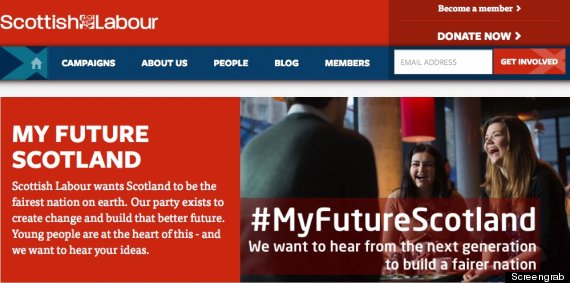
The latest social media effort by Scottish Labour leader Jim Murphy reveals an ugly detail about politicians (at least those from the "mainstream" parties) today; they are not interested in the opinions of the people they represent.
Just to be clear; they say they are, and they genuinely want you to believe it, but the secret sauce of honesty has been left out somewhere along the way. The activity of individual politicians and centralised party machinery on Twitter and Facebook shows a recognition of the potential for communication these platforms afford, but the lack of meaningful dialogue with social media users betrays the politicians' belief that social media is just a digital update of the traditional media they have manipulated, abused and bent to their will for the entirety of the post-war period.
Jim Murphy and Melanie Ward recently launched a social media campaign aimed at finding out the opinions and aspirations of young people in Scotland regarding the future of their country, complete with a hashtag MyFutureScotland. This is a smart, and entirely necessary move, on the part of the Labour party, given polling indications of massive support among young people for the SNP and independence, in the wake of the independence referendum last year.
Assuming that the polls are accurate in their forecasting of young people's attitudes, Labour should have had a good idea of the kind of reactions this campaign should have generated. An uncharitable commentator would even have said the whole exercise was irrelevant because the youth of Scotland had already shown Labour their thoughts on #MyFutureScotland at the ballot box. Whichever of those views you subscribe to, the crucial element point is that listening, responding and managing a constructive dialogue was going to be key to the credibility of this campaign. This is why the lack of any responses from either Jim Murphy or Melanie Ward, or any other senior Labour figures for that matter, when #MyFutureScotland was used by people to express (often legitimate) grievances with the party is so telling about the attitudes behind the whole thing.
In my mind's eye, the timeline of discussions behind the whole campaign went something like this:
Jim Murphy: "Young people hate us, but they love social media. We need to put together a message for social media that will bring them back into the fold. We should make it short, like their attention span."
Melanie Ward: "That's a great idea Murph, how about getting them to tell us their thoughts on the future of the country. We could use a catchy hashtag to easily focus the responses...how about #MyFutureScotland."
JM: "That's brilliant, how old are you? If Kezia doesn't toe the party line exactly the way I expect a servile deputy to, you're up kid. Get the hashtag launched on the internet, we're going to be more popular than Gangnam Style!"
MW: "Sure thing Murph!"
1 day later...
JM; "What happened to my beautiful hashtag idea? This is another fine mess you have got us into Melanie, how can we salvage this?"
MW: "Well...we could start a constructive dialogue with the people using the hashtag to express views we don't like, studies have shown that how you respond to negative user feedback on social media..."
JM: (Abruptly cutting in) "Are you fucking mental? Get the Record on the phone, feed them a sob story about cyber nats bullying democracy online. Job done. Do I have to think of everything around here? Who's idea was this Twitter shit anyway?"
Facetious political sketches aside, please don't take my word for it on this. Check the hashtag for yourself and marvel at the complete lack of response from the launchers of the campaign once it starts to go south, and then ask yourself this, if a politician really wanted to discuss the future of Scotland with you; wouldn't they, you know, discuss it?